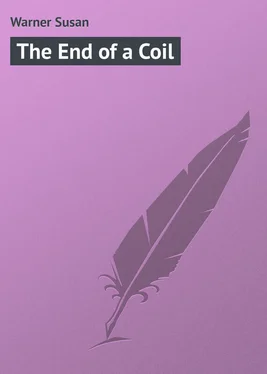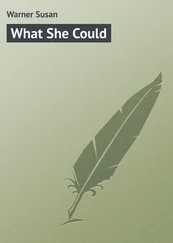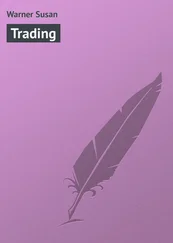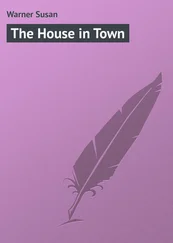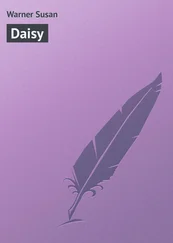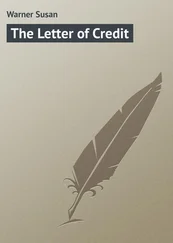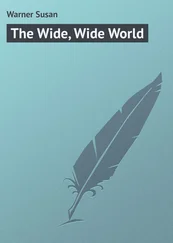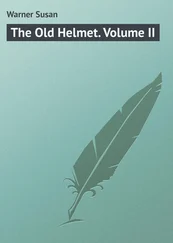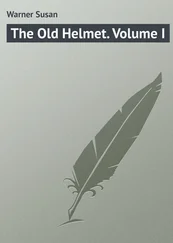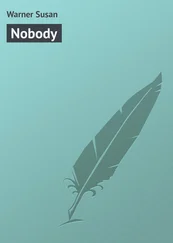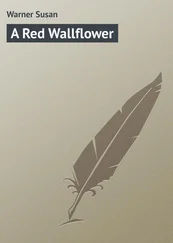Susan Warner - The End of a Coil
Здесь есть возможность читать онлайн «Susan Warner - The End of a Coil» — ознакомительный отрывок электронной книги совершенно бесплатно, а после прочтения отрывка купить полную версию. В некоторых случаях можно слушать аудио, скачать через торрент в формате fb2 и присутствует краткое содержание. Жанр: foreign_prose, foreign_children, на английском языке. Описание произведения, (предисловие) а так же отзывы посетителей доступны на портале библиотеки ЛибКат.
- Название:The End of a Coil
- Автор:
- Жанр:
- Год:неизвестен
- ISBN:нет данных
- Рейтинг книги:4 / 5. Голосов: 1
-
Избранное:Добавить в избранное
- Отзывы:
-
Ваша оценка:
- 80
- 1
- 2
- 3
- 4
- 5
The End of a Coil: краткое содержание, описание и аннотация
Предлагаем к чтению аннотацию, описание, краткое содержание или предисловие (зависит от того, что написал сам автор книги «The End of a Coil»). Если вы не нашли необходимую информацию о книге — напишите в комментариях, мы постараемся отыскать её.
The End of a Coil — читать онлайн ознакомительный отрывок
Ниже представлен текст книги, разбитый по страницам. Система сохранения места последней прочитанной страницы, позволяет с удобством читать онлайн бесплатно книгу «The End of a Coil», без необходимости каждый раз заново искать на чём Вы остановились. Поставьте закладку, и сможете в любой момент перейти на страницу, на которой закончили чтение.
Интервал:
Закладка:
She had several anxieties; she was obliged to confess it to herself unwillingly; for indeed anxiety was so new to Dolly that she had hardly entertained it in all her life before; and when it had knocked at her door, she had answered that it came to the wrong place. However, she could not but hear and heed the knock now; and she wanted to consider the matter calmly and see whether the unwelcome visitor must be really taken in, and lodged.
It was not her mother's condition. With the buoyancy of youth, and the inexperience, Dolly expected that Mrs. Copley would soon get well. Her trouble was about her father; and the worst thing about her mother's state of nervous weakness was, that she could not talk to her on the subject or get her help and co-operation. That is, if anything were to be attempted to be done in the matter. – That was another question she wanted to consider.
In the first place, she could not help seeing one thing; that Mr. Copley was not flush with money as he used to be; as he had always been, ever since Dolly could remember. It was wholly unlike him, to send her and her mother down to this cottage with a household of two women servants; barely enough for the work that was indispensably necessary. Evidently, Mr. Copley entertained no idea of showing hospitality here in the country, and Dolly thought he had been secretly glad to be relieved of the necessity of doing it in town. Very unlike him. It was unlike him, too, to content his pride with so meagre an establishment. Mr. Copley loved to handle money, always spent it with a lavish carelessness, and was rather fond of display. What had made this change? Dolly had felt the change in still other and lesser things. Money had not been immediately forthcoming when she asked for it lately to pay her mantua maker's bill; and she had noticed on several occasions that her father had taken a 'bus instead of a hansom, or even had chosen to walk. A dull doubt had been creeping over her, which now was no longer obscure, but plainly enough revealed; her father had lost money. How, and where?
Impossible to answer this question. But at the same time there floated before Dolly's mind two vague images; Epsom and betting, – and a green whist table at Mr. St. Leger's, with eager busy players seated round it. True, the Derby came but once a year; and true, she had always heard that whist was a very gentlemanly game and much money never lost at it. She repeated those facts to herself, over and over. Yet the images remained; they came before her again and again; her father betting eagerly in the crowd of betters on the race course, and the same beloved figure handling the cards opposite to his friend the banker, at the hospitable mansion of the latter. Who should be her guaranty, that a taste once formed, though so respectably, might not be indulged in other ways and companies not so irreproachable? The more Dolly allowed herself to think of it, the more the pain at her heart bit her. And another fear came to help the former, its fit and appropriate congener. With the image of Mr. St. Leger and his cards, rose up also the memory of Mr. St. Leger's decanters; and Dolly lowered her head once in a convulsion of fear. She found she could not bear the course of her thought; it must be interrupted; and she sprang up and hurried on up the bank under the great trees, telling herself that it was impossible; that anything so terrible could not happen to her; it was not to be even so much as thought of. She cast it away from her, and resolved that it could not be. As to the rest, she thought, poverty is not disgrace; she would not break her heart about that till she knew there was more reason.
So with flying foot she hastened forward, willing to put a forcible stop to thought by her quick motion and the new succession of objects before her eyes. Yet they were not very new for a while. The ground became level and the going grew easier; otherwise it was the same lovely park ground, the same wilderness of noble trees, a renewal of the same woodland views. Lovely green alleys or glades opened to right and left, bidding her to enter them; then as she went on the trees stood thicker again. The sun getting more low sent his beams more slant, gilding the sides of the great trunks, tipping the ends of branches with leafy glitter, laying lovely lines of light over the turf. Dolly wandered on and on, allured by the continual change and variety of lovely combination in which grass, trees, and sunlight played before her eyes. But after a while the beauty took a different cast. The old oaks and beeches ceased; she found herself among a lighter growth, of much younger trees, some of them very ornamental, and in the great diversity of kinds showing that they were a modern plantation. What a plantation it was! for Dolly could not seem to get to the end of it. She went fast; the afternoon was passing, and she was curious to see what would succeed to this young wood; though it is hardly right to call it a wood; the trees were not close to each other, but stood apart to give every one a fair chance for developing its own peculiar manner of growth. Some had reached a height and breadth of beauty already; some could be only beautiful at every stage of growth; very many of them were quite strange to Dolly; they were foreign trees, gathered from many quarters. She went on, until she began to think she must give it up and turn back; she was by this time far from home; but just then she saw that the plantation was coming to an end on that side; light was breaking through the branches. She pressed forward eagerly a few steps; and on a sudden stood still, almost with a cry of delight. The plantation did end there abruptly, and at the edge of it began a great stretch of level green, just spotted here and there with magnificent trees, singly or in groups. And at the further edge of this green plain, dressed, not hidden, by these intervening trees, rose a most beautiful building. It seemed to Dolly like a castle in a fairy tale, so bewitchingly lovely and stately it stood there, with the evening sunlight playing upon its turrets, and battlements, and all that grand sweep of lawn lying at its feet. This must be the "house" of which Lawrence had spoken; but surely it was rather a castle. The style was Gothic; the building stretched along the ground to a lordly extent for a "house," and yet in the light grace and adornment of its structure it hardly looked like anything so grim as a castle. The stillness was utter; some cattle under the trees on the lawn were the only living things to be seen.
Dolly could not satisfy herself with looking. This was something that she had read about and heard about; a real English baronial residence. But was it reality? it was so graceful, so noble, so wonderful. She must go a little nearer. Yet it was a good while before she could make up her mind to leave the spot where this exquisite view had first opened to her. She advanced then upon the lawn, going towards the house and scarce taking her eyes from it. There were no paths cut anywhere; it was no loss, for the greensward here was the perfection of English turf; soft and fine and thick and even. It was a pleasure to step on it; and Dolly stepped along, in a maze, caught in the meshes of the beauty around her, and giving herself up to it in willing captivity. But the lawn was enormously wider than she had supposed; her eye had not been able to measure distances on this green level; she had walked already a long way by the time she had got one-third of its breadth behind her. Still, Dolly did not much consider that; her eye was fixed on the house as she now drew nearer to it, busied in picking out the details; and she only now and then cast a glance to right or left of her, and never looked back. It did occur to her at last that she herself was like a mere little speck cast away in this ocean of green, toiling over it like an ant over a floor; and she hurried her steps, though she was beginning to be tired. Slowly, slowly she went; half of the breadth of lawn was behind her, and then three quarters; and the building was unfolding at least its external organisation to her curious eyes, and displaying some of its fine memberment and broken surface and the resulting lights and shadows. Dolly almost forgot her toil, wondering and delighted; though beginning also to question dimly with herself how she was ever to find her way home! Go back over all that ground she could not, she knew; as little could she have told where was the point at the edge of the lawn by which she had entered upon it. That way she could not go; she had a notion that at the house, or near it, she might find somebody to speak to from whom she could get directions as to some other way. So she pressed on, feeding her eyes as she approached it upon the details of the house.
Читать дальшеИнтервал:
Закладка:
Похожие книги на «The End of a Coil»
Представляем Вашему вниманию похожие книги на «The End of a Coil» списком для выбора. Мы отобрали схожую по названию и смыслу литературу в надежде предоставить читателям больше вариантов отыскать новые, интересные, ещё непрочитанные произведения.
Обсуждение, отзывы о книге «The End of a Coil» и просто собственные мнения читателей. Оставьте ваши комментарии, напишите, что Вы думаете о произведении, его смысле или главных героях. Укажите что конкретно понравилось, а что нет, и почему Вы так считаете.
